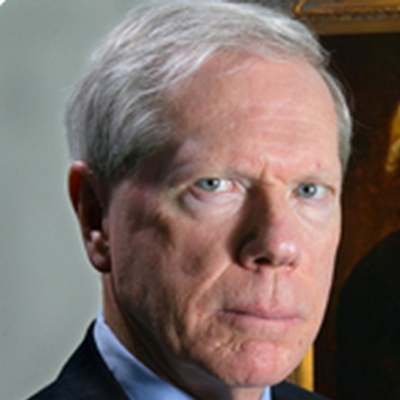by Paul Craig Roberts, Paul Craig Roberts:

In Part 1 ( https://www.paulcraigroberts.org/2024/04/11/the-great-dispossession/ ), I reported that we already do not own anything. The immediate response from readers is: what can we do to avoid dispossession? Offhand, the answer might appear to be debt-free property and gold and silver in personal possession. However, if the goal is that we own nothing and are controlled under a digital currency regime, these assets will be taken as well.
TRUTH LIVES on at https://sgtreport.tv/
Webb says if the billionaires and large financial institutions can be made aware of the situation, they could make Congress aware of the regulatory changes and force Congress to use its law-making power to undo the regulatory changes. After all, if there is no private financial property, there is no one to contribute to Congressional elections. Billionaires’ campaign donations elect the politicians, and what the regulatory changes do to billionaires is to reduce them to the same poverty as a homeless person. What the changes mean for large financial institutions such as Merrill Lynch, Schwab, etc., is their existence ceases. Webb’s hope is the combined influence can undo the regulatory changes. The question is whether awareness can be generated. The fate of Congress is also at stake. In the Great Reset there is no input from the people and no function for Congress.
As in all of my writings, I am trying to bring awareness. Little doubt the messenger will be shot.
The purpose of Part 2 is to outline the regulatory changes that have been made that have turned our property in financial assets into the property of “secured creditors.” Webb terms them legal changes, which they are, but as I read it from regulatory, not legislative, action. Webb says the changes are global, but he only describes how the US and EU effected the changes for themselves. I am unable to imagine that Russia, China, Iran and any parts of the world not captured in the Western financial system are parties to the dispossession, especially under the regime of sanctions. As I read it, the dispossession that awaits is limited to the Western world and its captive countries. By global, perhaps Webb means the global operations of Western world financial organizations.
First some definitions: an “account holder” is you, your IRA, your pension plan, your stock and bond investments held at an “account provider” or “intermediary” or “depository institution” such as Merrill Lynch, Schwab, Wells Fargo. An “entitlement holder” is the definition of you whose ownership claim to your financial assets has been subordinated to the claims of “secured creditors” of the institution where you have your accounts. Please do understand that the dispossession of which I write is your dispossession.
As reported in Part 1, a country’s securities are pooled in a Central Security Depository (CSD). Each national CSD is linked to the International Security Depository (ICSD), which in the words of a 2013 report by the Bank for International Settlements Committee on the Global Financial System, makes available to “secured creditors” all available collateral (all of our stocks and bonds) and provides cross-border mobility of collateral from the “collateral giver” to the “collateral taker.” Yes, these terms are explicitly used, indicating recognition that theft is taking place.
Webb writes that these arrangements were “designed and deliberately executed to move control of collateral to the largest secured creditors behind the derivatives complex. This is the subterfuge, the endgame of it all.”
To achieve these arrangements took many years and many regulatory changes that did not involve financial market participants (you) in the decisions. The differences between financial property rights in the US and in some European countries were a special obstacle which required “harmonization” of Europe with the US. The first effort was signed only by the US, Switzerland, and Mauritius. The EU did not sign, because in some EU member countries (Sweden, Finland, for example) the purchasers of securities had inviolable property rights based on the ancient legal principle of lex rei sitae.
Webb describes, citing the documents, the 10-year work-around of this blockage.
The creation of cross-border collateral mobility began with the Depository Trust Corporation moving from physical stock certificates held in the owners name to book-entries. A “paperwork crisis” was claimed from having to process transactions of individually owned shares of securities.
Then the US Uniform Commercial Code was quietly amended over many years without requiring an act of Congress. Here are the changes:
Read More @ PaulCraigRoberts.org



